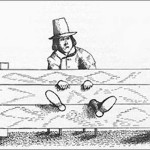So many workshops, courses and seminars advertise themselves as “taking your writing to the next level.” Often with superfluous exclamation points. But what does this really mean?
Writing Tip for Today: You’re a pro, right? And you’re serious about writing. So how can you know what the “next level” is?
- Look for Definitions. Of course, the “next level” could mean a lot of things. It’s one of those hyped phrases which promise almost more than it can deliver. On one hand, this could mean you finally stop littering your prose with “ly” words. Nothing wrong with it. But it does seem like a rather small step. On the other hand, what if you learn what a scene is and how it might energize your story more than the long soliloquies now populating your manuscript. I’d say that’s one giant leap. When you hear “next level,” you’ll want to try to decide what areas of writing you need to improve in, and ask if the workshop will cover those areas.
- Big Picture or Small Picture? In writing, it all matters, but great storytelling should be able to rise above grammar, spelling and mechanics. When considering a “next level” workshop, some BIG PICTURE areas you might ask about include: Character Building, Scene Writing Techniques, Story Arc and Pacing. If you need to focus more on small stuff, ask about grammar and usage, punctuation, spelling and style. In “small picture” skills, don’t forget about a basic Word program course–it may help you more than a course on writing if you’re new to computers.
- The NEXT Level Playing Field. The “next level” of writing will always be YOUR NEXT LEVEL. Especially if you’ve been feeling stuck, learning a new skill can really boost confidence. But don’t expect all the blind spots to be corrected after one magic workshop. Writing is a craft. You can learn a craft. But it takes time. And although I’d recommend you do take workshops from time to time (DO check out the source, and be sure the instructor has the skill you’re looking for), TIME and PRACTICE are the two best “next levels” any writer can hope for. Get thy BIC and I’ll see you at the next level!






Good suggestions, Linda~
Blessings~
Diane,
Thanks for dropping by! Write On! ~Linda
Loved this post. It’s so true. And you give great concrete ideas for someone to gauge what the “next level” might be for them. Excellent insights. Thank you!
Mackenzie,
I think it’s frustrating when writing teachers aren’t specific if they can be. Thanks for dropping by! And keep writing. ~Linda
Nice read! The tips mentioned above are really very helpful for content writing. If you want your content writing to be noticed among readers, it is essential to organize your content in a perfect manner. Your writing skills should be perfect so that people will find your content helpful. There is no sense of publishing the content having grammatical mistakes. After writing content for web page or blog, it is advisable to proofread it. Proofreading the content ensure you that your content is free from any grammatical error. I am also not a perfect write so I use proofreading services form Docfixers. Although spellcheckers can be useful in a limited way, but cannot correct the content perfectly like an experienced and professional proofreader can do.
OK. I was having a hard time deciding if this comment was for real or spam. Almost sounds like an ad. :-l ~Linda